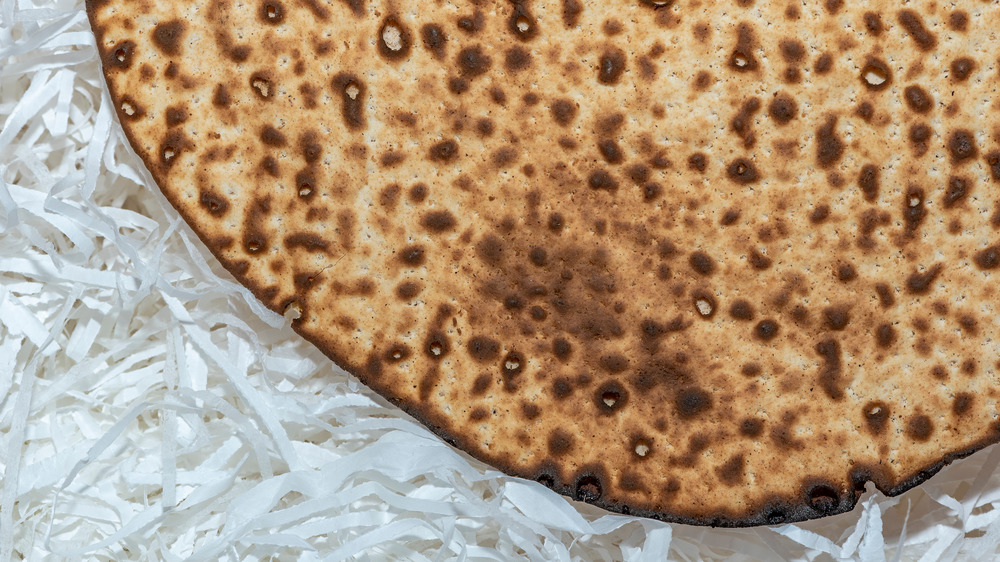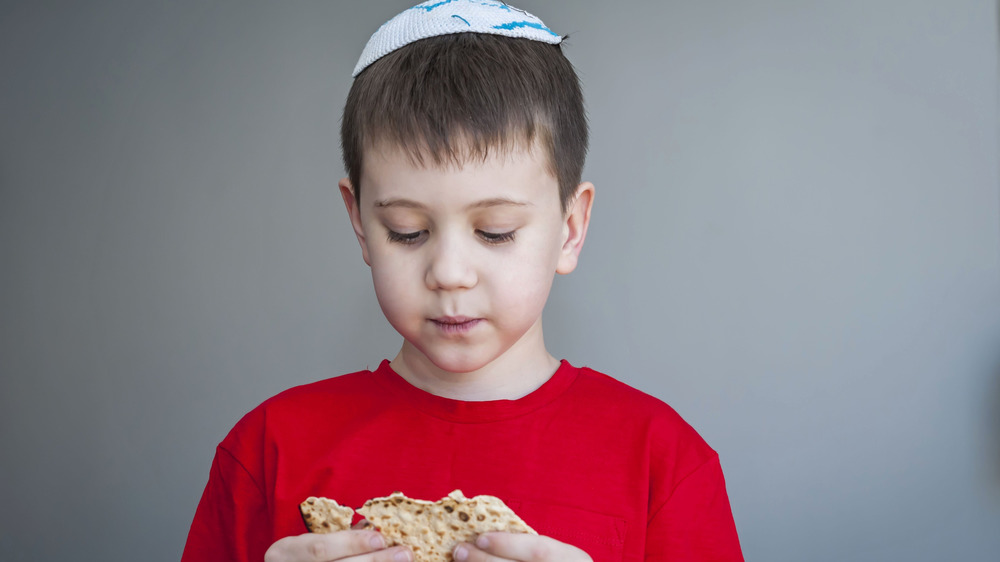What's The Difference Between Shmurah Matzo And The Regular Kind?
Bad news for Jewish people who got addicted to home-baked sourdough bread during the pandemic. During the eight days of Passover beginning the evening of Saturday, March 27, and continuing through the night of Sunday, April 4, 2021, sourdough is verboten. And it's not just that Jewish people aren't allowed to eat it. They're not even allowed to have it in their homes.
The eating of matzo during Passover is meant to symbolize, among other things, the simple meal that God commanded the Jewish people to eat the evening before they fled from Egypt (which included unleavened bread) according to Chabad.org. It is also meant to fulfill God's dual commandments that the same meal shall be eaten as a ritual every year thereafter in memory of the exodus from Egypt and that sourdough must not be eaten during the duration of the Passover holiday.
Of course, Passover's ban on leavened bread is not exclusive to sourdough. It's just that sourdough is meant to symbolize all mixtures of grain and water that have been allowed to ferment, which is the chemical reaction that initiates the process of rising. In fact, preventing fermentation is so critical to keeping things literally kosher for Passover that there is even a particular type of matzo that is meant to address any lingering concerns one might have that what they're eating might have involved any fermentation at all. It's called "shmurah matzo," and here's what makes it different from the regular kind.
The difference between shmurah matzo and the regular kind comes down to what is meant by "guarding"
It is a biblical commandment that Jewish people shall "guard the matzo" to ensure it is never allowed to ferment, let alone rise, according to the late Rabbi Eliyahu Kitov, OBM, "one of Israel's most acclaimed religious authors" (via Chabad.org). For all matzo and not just shmurah matzo, the process of "guarding" includes supervising the taking of the wheat to the mill to ensure that it does not ever come into contact with moisture, which might initiate the fermentation process, or touch the crumbs or other remnants of any other baked good that has not been so carefully guarded. It also includes allowing the milled wheat to rest and cool overnight, and not allowing the dough to come into contact with any heat source since warmth could contribute to fermentation.
For shmurah matzo, the guarding begins with reaping the wheat "before the sheaves have completely dried out" (because then it can't draw water from the ground and thus commence fermenting). In addition, prior to milling, the wheat is inspected to make sure none has split or begun to sprout. "Many authorities maintain that one can fulfill the mitzvah of eating matzah on the first night of Passover only by using matzah shmurah," Rabbi Kitov wrote. Those who follow the word of such authorities are careful only to use shmurah matzo for Passover, as opposed to the regular kind.

